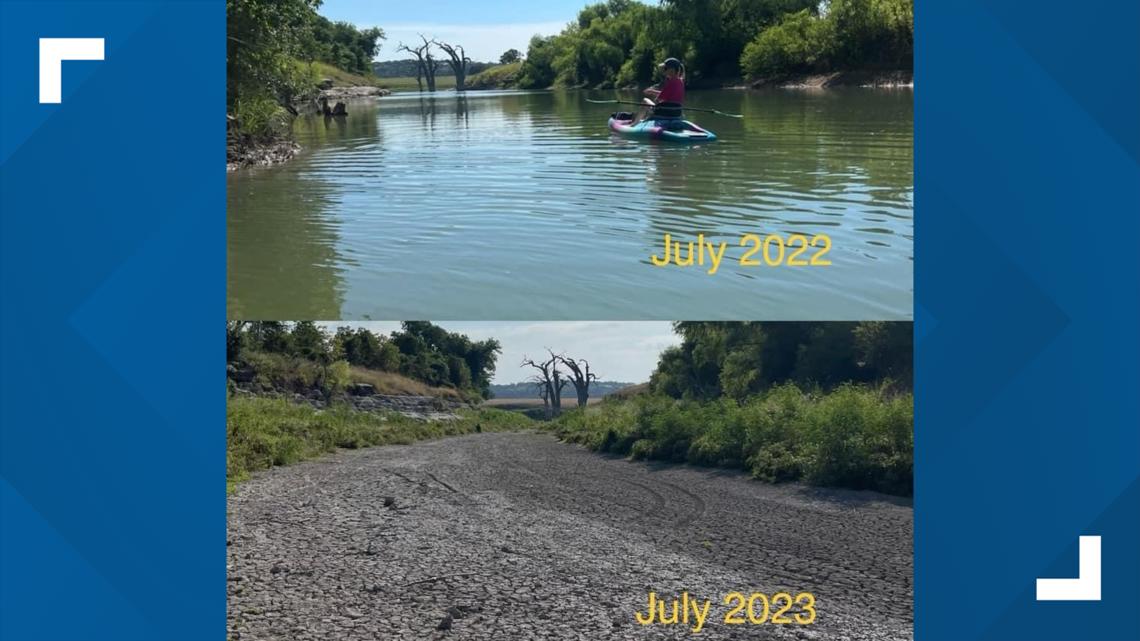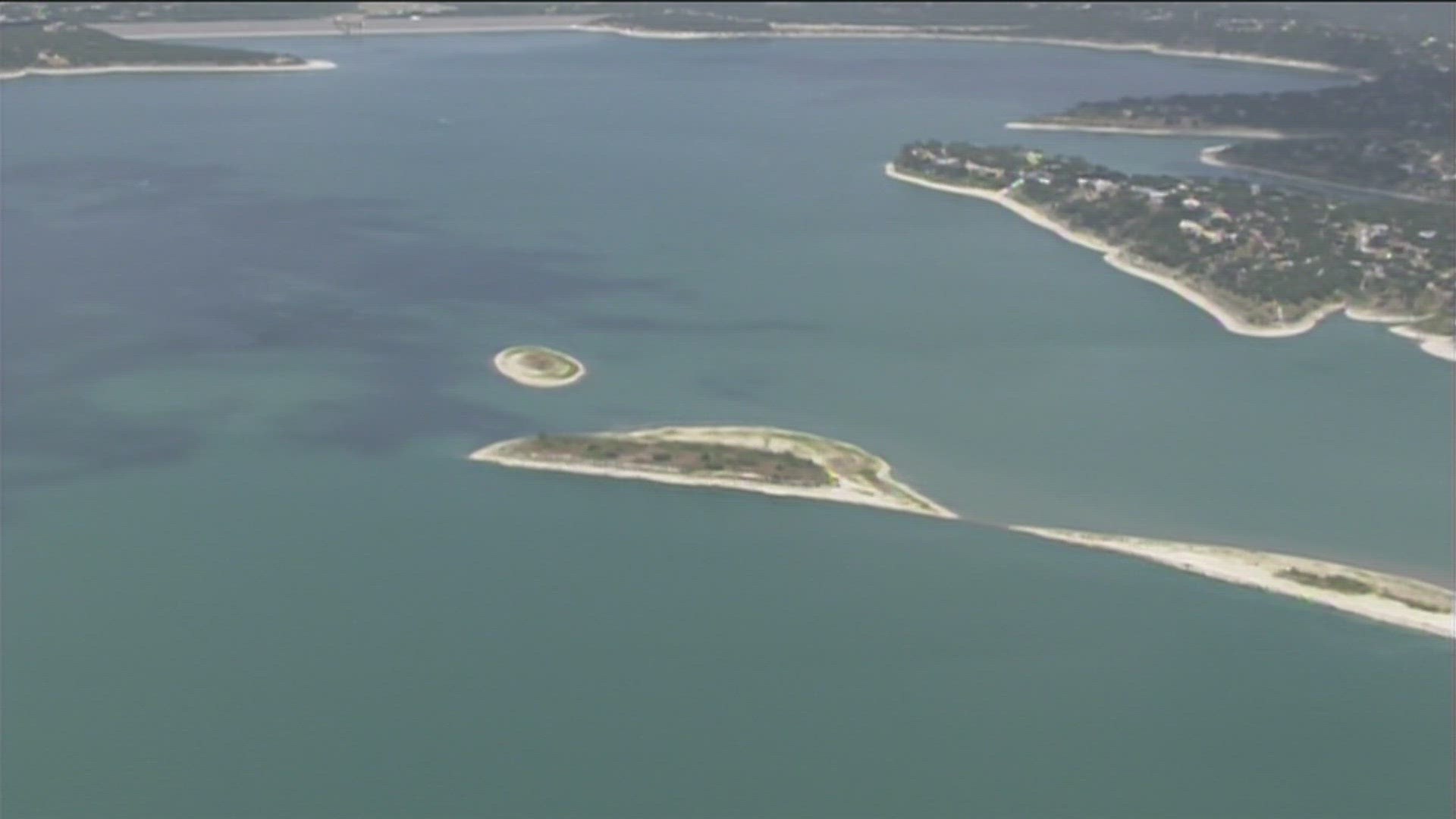CANYON LAKE, Texas — Located about 40 miles north of San Antonio, the water at Canyon Lake is just feet away from historic lows. As of Tuesday, water at the lake stands at 72.1% capacity, and a majority of the boat ramps in the area are now closed.
At Boat Ramp 11, visitors will find cracks in the soil and dry brush. A photo posted to the Facebook group "Kayaking Central Texas" shows a woman kayaking in the same area this time last year, the water replaced by dry ground.


According to the U.S. Army Corp of Engineers, Canyon Lake's lowest elevation was recorded on Sept. 9, 2009, when the lake was at 892.7 ft-msl. This week, the mean water level is just two feet away from that, at 894.7 ft. The conservation pool elevation is 909.00 ft.
This time last year, Canyon Lake was just four feet short of that figure.
"We're going to try a little fun, and then jump in the water and cool off every now and then," said William McSweeney, a San Antonian who was visiting the lake with his family on Tuesday.
They stopped by a few weeks ago too, a span of time that was big enough for them to notice a difference.
"There was plenty of depth for us. Saw a couple of branches that maybe were reaching the surface of the water," McSweeney said.
According to the National Oceanic and Atmospheric Administration, 13.2 million people in Texas are experiencing drought. Comal County is experiencing extreme and severe drought, while most of Kendall County is under exceptional drought. Most of Bexar County is under severe drought.
Medina Lake is only 4.7% full, according to Water for Data Texas.
The Texas Hill Country Conservation Network has released a recent plan in an effort to protect natural resources, including water, called "The Hill Country Land, Water, Sky and Natural Infrastructure Plan." It was developed over 18 months to help local officials, conservation organizations and residents take action for future natural resources.
The group spoke to 2,800 residents in the Texas Hill Country, 85% of which said they would support increasing public funding for conservation.
"We're growing like crazy as a region in Central Texas. This plan really seeks to create a vision for how we protect our natural resources," said Katherine Romans, executive director of the Hill Country Alliance and chair of the Texas Hill Country Conservation Network.
Romans went on to say investing in natural resources is one of the most cost-effective ways to protect water resources going forward. According to the plan, water remains one of the top priorities for residents in Hill Country communities.
"We all know, with each passing day of drought, (that) we're getting one day closer to the next catastrophic flood in our region," Romans said.
To read more about the plan, visit the Texas Hill Country Conservation Network website.
>TRENDING ON KENS 5 YOUTUBE:

